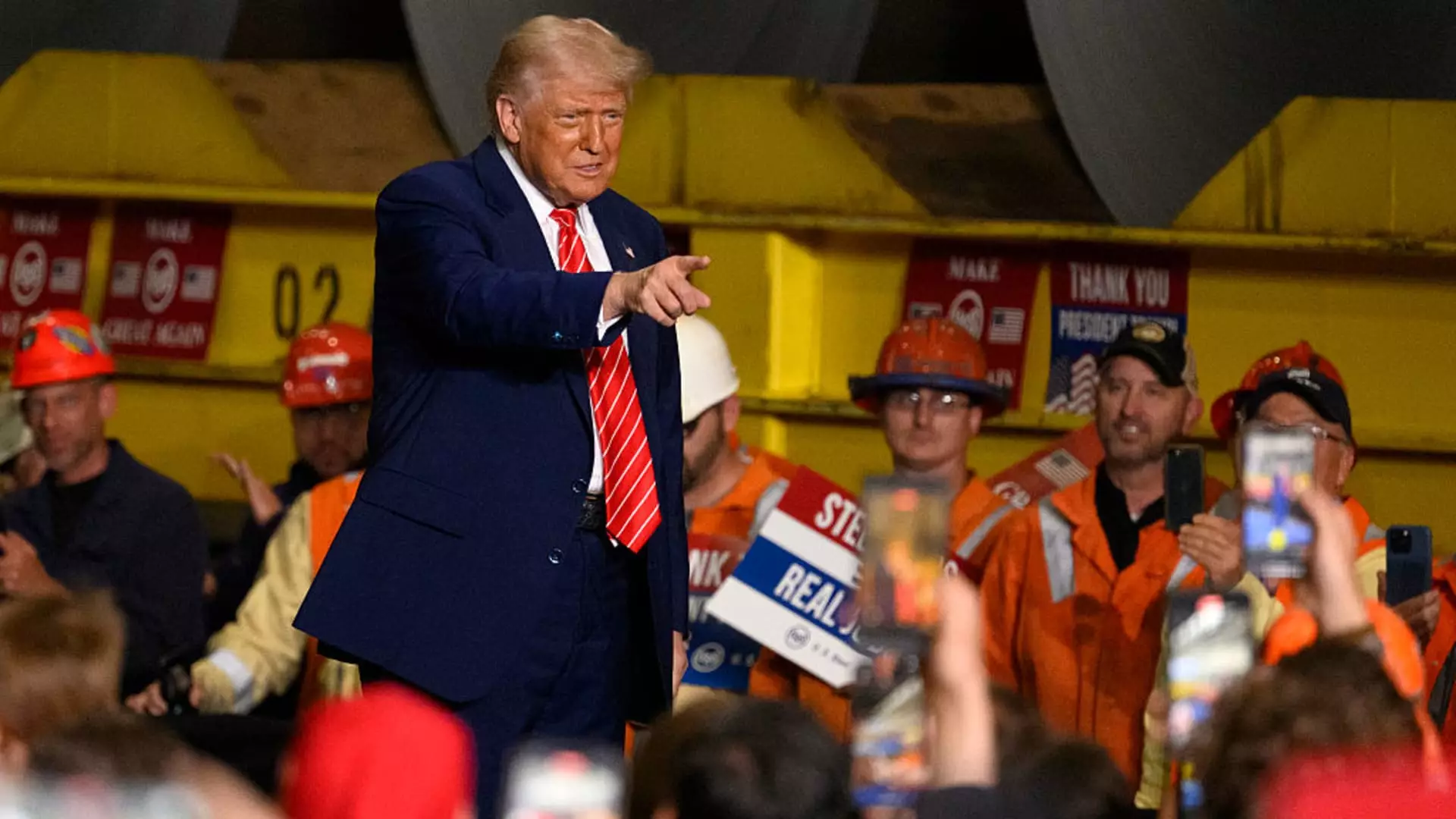The recent decision by President Donald Trump to double tariffs on steel imports, raising them from 25% to a staggering 50%, threatens to send shockwaves through both American and global markets. This unilateral maneuver, made in an incendiary rally setting, is not just a political gambit; it is a grave miscalculation that disregards the intricate web of international trade relationships. Instead of fostering a conducive climate for negotiations, Trump’s actions poison the well of dialogue, necessitating a critical examination of the ramifications that extend far beyond the trade sector.
Domestic Repercussions: A Mixed Bag for American Workers
While proponents of the tariff may argue that such a policy will shield American industries and translate to job creation, the reality elucidates a more complex picture. The United Steelworkers Union’s vehement disapproval underscores a significant vulnerability: these tariffs do not solely impact foreign competitors; they impose a heavy burden on American manufacturers who rely on affordable steel to produce goods. By inflating production costs, the tariffs threaten to stifle innovation and economic growth, potentially leading to layoffs in sectors that could have been bolstered by accessible materials. Furthermore, consumer prices are bound to spike, hitting middle-class families right where it hurts. What appears as a protective measure can, in fact, spiral into a job-killing cycle.
Global Backlash: An International Response
The European Union’s immediate condemnation reveals the broader geopolitical stakes in play. An EU spokesperson articulated the view that Trump’s decision “undermines efforts” at forging diplomatic solutions, indicating a recognition that international cooperation is pivotal in today’s interconnected economy. The prospect of countermeasures looming on the horizon suggests that this trade battle is poised to escalate, carrying the potential to envelop both allies and adversaries in a tit-for-tat conflict that extends far beyond steel. The EU’s preparedness to retaliate not only indicates the seriousness of the situation but foreshadows a prolonged dispute characterized by economic uncertainty.
Questioning Authority: Legal Challenges on the Horizon
Moreover, this tariff escalation faces a significant obstacle in the form of legal challenges. The United States Court of International Trade has already put brakes on various tariffs, signaling legal scrutiny regarding the administration’s authority. This internal conflict raises essential questions about governance and the bounds of presidential power in economic policy formulation. Trump’s administration may argue that these tariffs are necessary for national security, but the swift court intervention suggests a hesitance among legal experts regarding this interpretation. The ongoing legal battle could delay or derail the effectiveness of these tariffs, presenting a paradox in Trump’s strategy that relies heavily on aggressive economic tactics.
The Ripple Effect: Economic Realities and Political Calculations
It is essential to recognize the broader economic realities that such policy shifts create. The imposition of harsh tariffs not only complicates existing alliances but also instills fear about a protectionist agenda that could force allies like Canada and members of the EU into precarious positions. Stakeholders from various industries find themselves caught between the crossfire of a political landscape shifting towards insularity. The American steel industry itself may draw short-term gains, but the wider economic ramifications risk alienating crucial trading partners and igniting retaliatory measures that would only serve as a pathway to broader economic downturn.
In essence, Trump’s steel tariff hike may resonate as an assertive and bold declaration of American strength; however, the myriad of complications that follow pose significant threats to the core of American economic stability and international relationships. The question remains whether the short-term political victories will overshadow the long-term economic consequences and lead to a deterioration of cooperation that is essential in an increasingly globalized world.



Leave a Reply